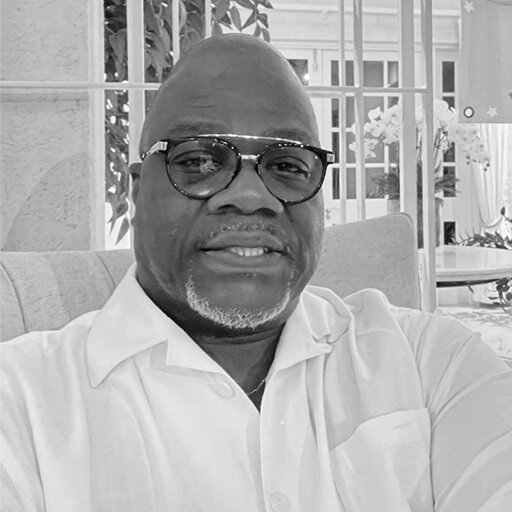Darryl C. Stratton is Alpine’s Director of Human Resources. He oversees the recruitment, onboarding, and engagement of new employees as well as handling employee relations and developing HR policies and procedures. With over 20 years of experience in HR, Darryl has the tools to help effectively build up our staff while ensuring that we continue to provide an inclusive, engaging, and fulfilling workplace. He is a US Army veteran and has worked for companies as varied as Fortune 500’s to startups which have given him a unique perspective on all phases of company development and growth.
Darryl has a BA in English and several SHRM (Society for Human Resource Management) certifications, including the SHRM Certified Professional (SHRM-CP) designation. In his spare time, Darryl enjoys golfing, reading, travel, streaming movies, and participating in community service. His favorite quote is “Do no harm.”
Click here to listen to full podcast
Alka Bahal: Welcome to The Think Factory’s Workplace Podcast, powered by OGC Solutions, the podcast where we explore the ever-evolving landscape of workplace dynamics. My name is Alka Bahal. I’m a partner with Outside General Counsel Solutions and the Chair of our Corporate Immigration Services Group, and I’ll be your host today.
I am very pleased to have with me here Darryl Stratton, Director of Human Resources for Alpine Ocean Seismic Survey. Welcome to the podcast, Darryl.
Darryl Stratton: Thank you, Alka. Thanks for the invite.
Alka Bahal: Oh, it’s my pleasure. Darryl is a skilled HR professional with experience in a wide range of industries, from building materials to pharma to maritime. Darryl, tell us a little bit about your career path and what led you to your current role.
Darryl Stratton: Sure. I actually stumbled upon HR after graduating from college with a degree in English.
I decided to actually go into the military as a United States Army soldier enlisted, and I really got introduced to personnel management back in the 80s. It’s been that long ago. And took it on as a secondary military occupational specialty.
I initially was involved with logistics in the military, but once I transitioned over to personnel management, I really started to appreciate the work that, you know, really HR did for individuals. And I really stuck with that. And when I got out of the military, I continued to pursue it as a private citizen and started working for the Department of Transportation in Dallas as a journalist.
And just kind of poked it from there. Ended up becoming the director to replace my boss and then transitioned over into the private sector. And it just kept going on and on from there. And worked in various industries and really started to enjoy the work as an HR professional as a result.
Alka Bahal: And you’ve accumulated a great deal of experience under your belt in that process. Did you find it was different handling, I mean times have obviously changed, but was it different handling HR in the military environment versus civilian?


No responses yet